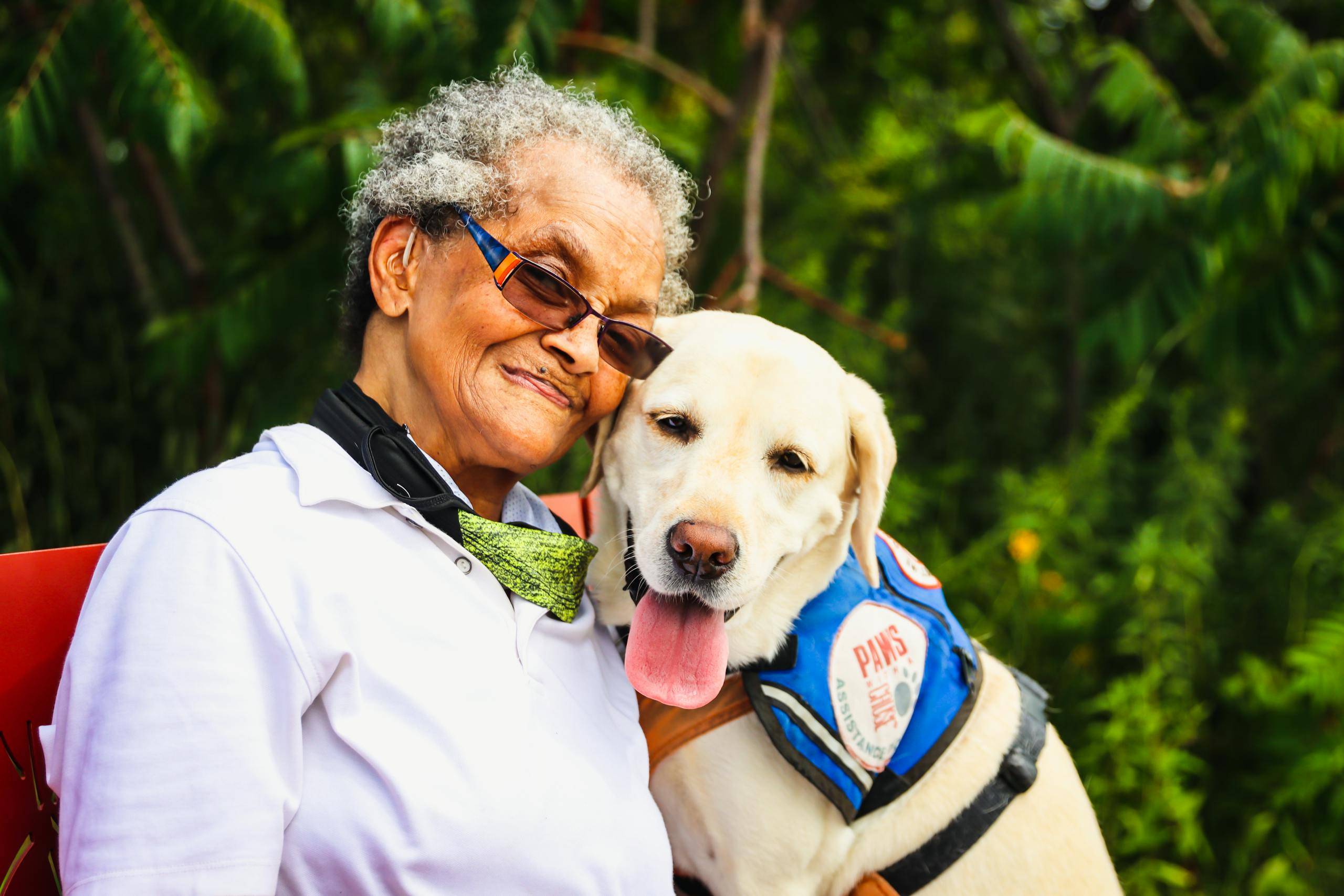Background: Service Animals

Per ADA guidelines, The Eye Care Institute allows service animals accompanying persons with disabilities to be on campus. A service animal must be permitted to accompany a person with a disability in nearly all areas, except those where the animal would compromise a sterile environment or pose a safety risk.
This policy differentiates service animals from pets and emotional support animals, describes the types of service dogs, and outlines behavioral expectations for service animals.
Definition of a Service Animal
Service animals are defined as dogs that are individually trained to do work or perform tasks for people with disabilities. Examples include guiding individuals who are blind, alerting those who are deaf, pulling a wheelchair, alerting and protecting someone experiencing a seizure, reminding a person with mental illness to take prescribed medications, calming a person with Post-Traumatic Stress Disorder (PTSD) during an anxiety attack, or performing other specific duties. Service animals are working animals, not pets. The task the dog is trained to perform must be directly related to the person’s disability. Dogs whose sole function is to provide comfort or emotional support do not qualify as service animals under the ADA.
The ADA also allows for miniature horses that are individually trained to do work or perform tasks for people with disabilities. Miniature horses typically range in height from 24 to 34 inches (measured at the shoulders) and weigh between 70 to 100 pounds. The Eye Care Institute permits miniature horses as service animals where reasonable. There are four factors used to assess whether the facility can accommodate a miniature horse:
- Whether the miniature horse is housebroken
- Whether the miniature horse is under the owner’s control
- Whether the facility can accommodate the miniature horse’s type, size, and weight
- Whether the horse’s presence will not compromise legitimate safety requirements necessary for the safe operation of the facility
Requirements
Requirements for Service Animals and Their Handlers
Per ADA regulations, service animals must be harnessed, leashed, or tethered unless doing so would interfere with their work or the individual’s disability prevents using such devices. In these cases, the animal must be under the handler’s control through voice, signal, or other effective means.
Requirements for Staff of The Eye Care Institute
When it is not obvious what service an animal provides, staff are only permitted to ask two questions:
- Is the dog a service animal required because of a disability?
- What work or task has the dog been trained to perform?
Staff may not ask about the person’s disability, require medical documentation, request a special identification card or training documentation for the animal, or ask the animal to demonstrate the task it performs.
Staff are not required to provide care or food for a service animal.
When a Service Animal May Be Asked To Leave
A person with a disability may only be asked to remove their service animal from the premises if:
- The animal is out of control and the handler does not take effective action to control it
- The animal is not housebroken
If removal is necessary, staff must still offer the individual the opportunity to receive goods or services without the animal’s presence.
Allergies or fear of dogs are not valid reasons to deny access or refuse service. When someone is allergic to a service animal and both must remain in the same room, reasonable accommodations should be made—such as placing them in separate parts of the room or in different rooms altogether.
Areas Where Service Animals Are Permitted
Per ADA guidelines, The Eye Care Institute allows service animals to accompany individuals with disabilities in all public areas of the facility. This includes exam rooms and restrooms. However, service animals may be excluded from procedure rooms or other environments where their presence could compromise a sterile field or create a safety concern for the patient or the animal.
People using service animals may not be isolated, treated less favorably, or charged additional fees compared to other patients.
If The Eye Care Institute typically charges for property damage, a patient with a disability may also be held responsible for damage caused by their service animal.
